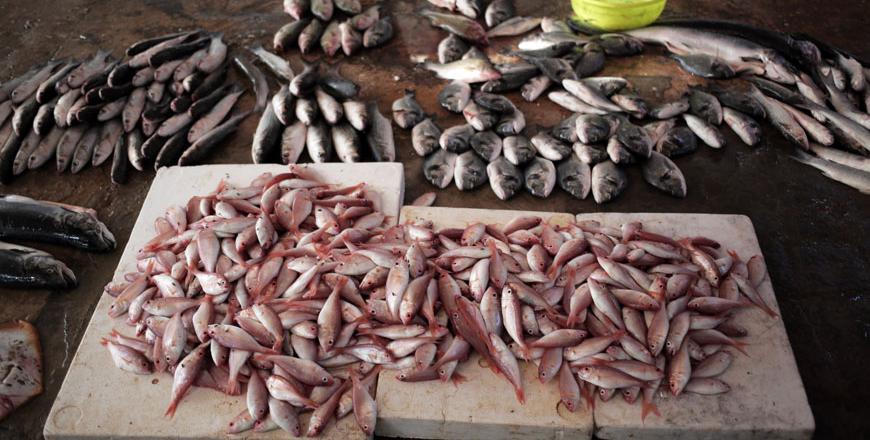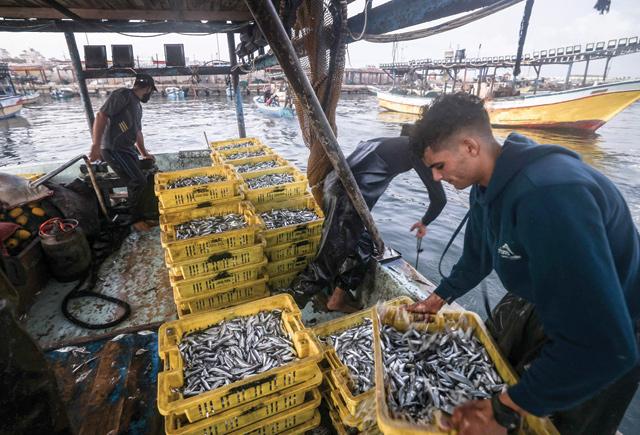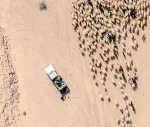You are here
In Gaza Strip, fish farms bring relief to seafood lovers
By AP - Jun 09,2015 - Last updated at Jun 09,2015

In this Friday photo, fish are displayed for sale in the fish market of Gaza City (AP photo)
KHAN YOUNIS — The Gaza Strip, with a 40-kilometre Mediterranean coastline, was always known for its seafood until Israel restricted the fishing area.
As a result, Palestinians have begun importing fish and other seafood from Israel or Egypt and building fish farms.
Israel imposed a blockade on Gaza in 2006 after Hamas fighters captured an Israeli soldier and tightened the closure the following year after Hamas seized control of the territory. Israel says the restrictions are needed to prevent Hamas, an armed group sworn to its destruction, from smuggling weapons into the territory. The sides have fought three wars since the Hamas takeover.
At times of heightened tensions, the fishing zone was barely three nautical miles. Today, it is 9.6km, still half of the pre-blockade distance.
The fish farms have helped bring down prices of the popular sea bream fish. But another popular item, shrimp, remains extremely expensive, costing up to $25 a kilogramme.
Rezek Al Salmi, who worked at an Israeli fishery for 20 years, is trying to change this. He has built Gaza's first shrimp farm in Khan Younis in southern Gaza.
In 2014, Gaza fishermen caught only two tons of fish from the sea, meeting a small fraction of Gaza's needs, said Walid Thabet of Gaza's agriculture ministry. There are four commercial fish farms in Gaza, most of them producing bream. Last year, they produced 220 tonnes, Thabet said. Other fish is imported from Israel.
Fish Fresh, the largest grower of bream in Gaza, serves everyday people and restaurants.
"This place is a wonderful alternative to the sea for fresh fish," customer Ibrahim Moussa said.
Rafah restaurant owner Abu Al Amir Zurob said rough seas can limit catches. "Sometimes there is no fish for five days, so there is nothing but these farms to get the fish. They helped us so much."
But not everyone is welcoming the farms. "When there is a lot of fish, when the farms produce so much, its price goes down," said Sami Al Hessi, a fisherman.
Related Articles
He is angling for more discerning catches like grouper, sea bream and large shrimp, which can go for around 70 shekels ($22) a kilo — a small fortune in the impoverished enclave, under Israeli blockade since 2007.
After hours casting their nets close to the Gaza shore, Palestinian fishermen sift through their catch in the dim dawn light, managing to scrape together a few piles of limp fish.
OCCUPIED JERUSALEM — Israeli tanks shelled military positions of Gaza's ruling Hamas movement early Saturday, the Israeli forces and Palesti















